How ‘Hidden Figures’ Costume Designer Used Fashion to Bring an Untold Story to Light
Only three weeks after opening, Hidden Figures is still going strong, grossing over $64 million at the box office so far and garnering critical acclaim. The film tells the untold story of three African-American women — Katherine G. Johnson (Taraji P. Henson), Dorothy Vaughan (Octavia Spencer) and Mary Jackson (Janelle Monáe) — who worked as mathematicians at NASA and made history with the launch of American astronaut John Glenn into Earth’s orbit in 1962. All of this is accomplished while tearing down racial and gender stereotypes during the civil rights era.
Of course, the movie’s period-perfect outfits also garnered a lot of attention. Responsible for the cast’s costume design was Renee Ehrlich Kalfus. She proved that the work of a costume designer is far from just playful imagination; it requires a level of dedication and historical accuracy. “The fact that [this story] was untold — we all came to it just plain not knowing about it. How did we not know this? It’s a remarkable thing,” Kalfus told Yahoo Style on first joining the team for the movie.
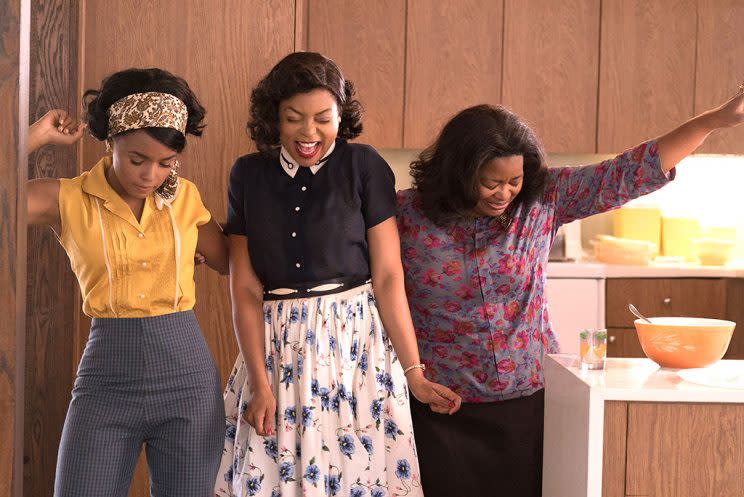
To research the era and the types of dress the characters needed, Kalfus delved into NASA archives and footage, and explored photos taken in the South during the civil rights era, family albums, and vintage Ebony magazines.
“First you do the extensive research,” Kalfus told Yahoo Style. “That time was well-documented. It was the early ’60s. We had a specialist from NASA. We used yearbooks. We had Katherine’s home pictures. We had all the protests and the march. We were able to research that time. That’s where it starts.”
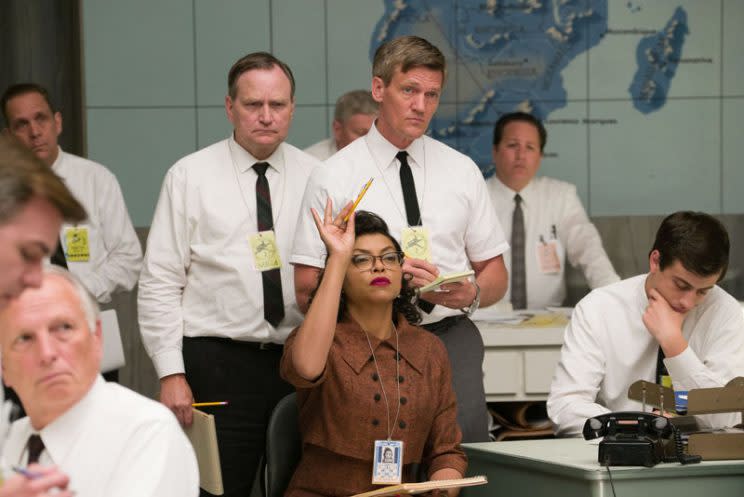
Equipped with info on the time period, she was able to conceptualize and bring to life the wardrobes of Johnson, the math genius; Vaughan, NASA’s first African-American female supervisor; and Jackson, the agency’s first African-American female engineer (who also was the first African-American to take classes at Hampton High School, an all-white high school, to receive credits that would make her eligible to become an engineer).
With strict and conservative dress codes for women in the NASA programs — skirt lengths were regulated and no jewelry was allowed except for one pearl necklace — Kalfus had to find the balance between abiding by the rules of the time while still highlighting style. “I wanted to bump up [their style] so that you admired these women, and you want to be that person on the screen,” said Kalfus.
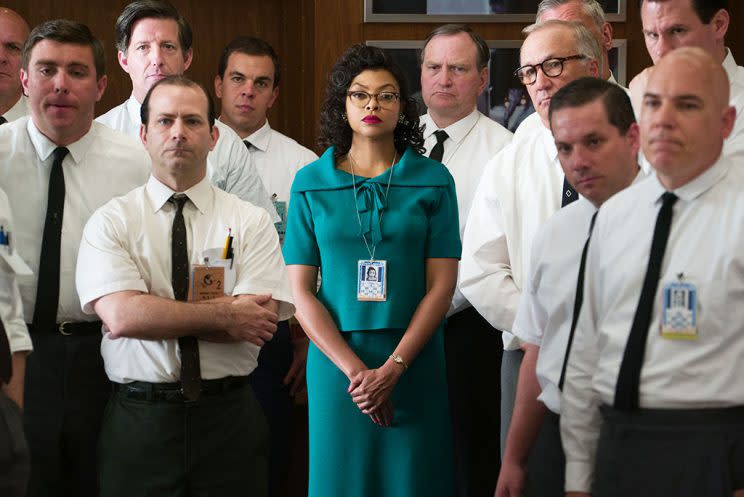
It was those choices that challenged Kalfus to distinguish Johnson from her co-workers on the NASA task force team, a group of white males who dressed uniformly and conservatively. Those who have seen the movie will recall Johnson’s first day on the job, when she’s handed a trashcan — having been mistaken for the janitor and not the math genius that she was. “She was a single mom with three kids working at NASA full-time, and she sewed her own clothing,” Kalfus remarked. “She went from demure to a more definitive, stronger character. She always knew the numbers. Now she got the chance to stand out.” Kalfus wanted to ensure that Johnson’s distinction wasn’t made just by the color of her skin but by her style choices at work too.
“We saw a lot of images of this space test group room, and they’re all in this one shirt, and I said, ‘Let’s put them all in gray jackets and make it really monochromatic,'” Kalfus told the Hollywood Reporter. “Because the women were in a whole other area of NASA. They were not near anybody, and they were segregated from one another. So when she does come in, she’s just this pop of color. It was the way we wanted to tell the story.”
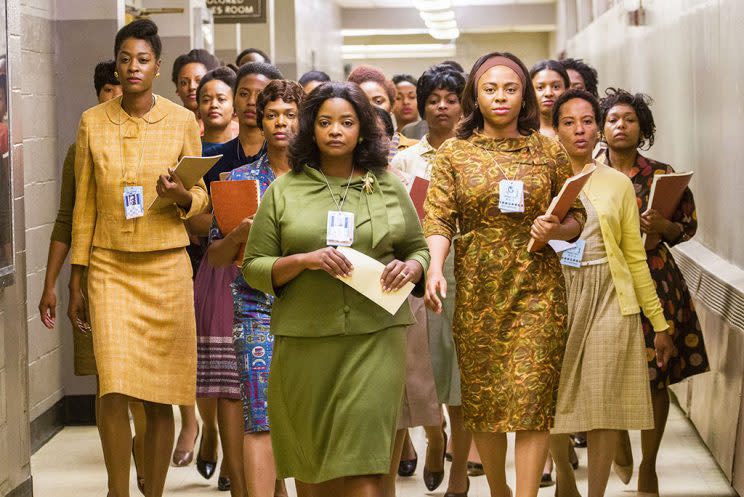
For Dorothy, Kalfus dressed up Spencer in polished nudes and earthy tones to suggest her ranking and career ambition. “The dresses were to the knee. They had to wear hose and heels,” according to Kalfus. “It was a very conservative time. Things fit in a certain way. But we brought in jewel tones.” Since Dorothy was very political and had a plan to accelerate her career as well as her team’s, Kalfus made sure she dressed the part.
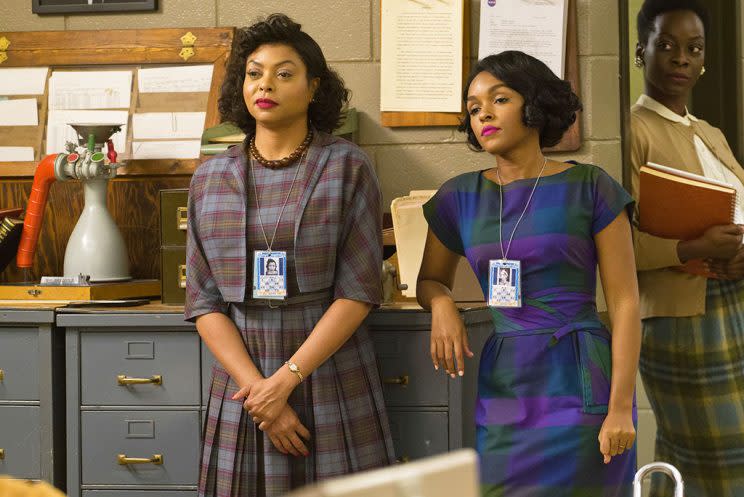
For Mary, a feisty and aspirational woman fighting for the opportunity to be an engineer for NASA, Kalfus curated a less structured, colorful, and feminine wardrobe to represent her personality and challenge to convention. “It was about building characters, these three women who really lived this life, and imagining how this would take place on the NASA campus. I wanted to build all the costumes and get a lot of vintage stuff on Mary.” To give Mary a true vintage feel, Kalfus worked to gather unsold clothes from vintage shops and thrift stores.
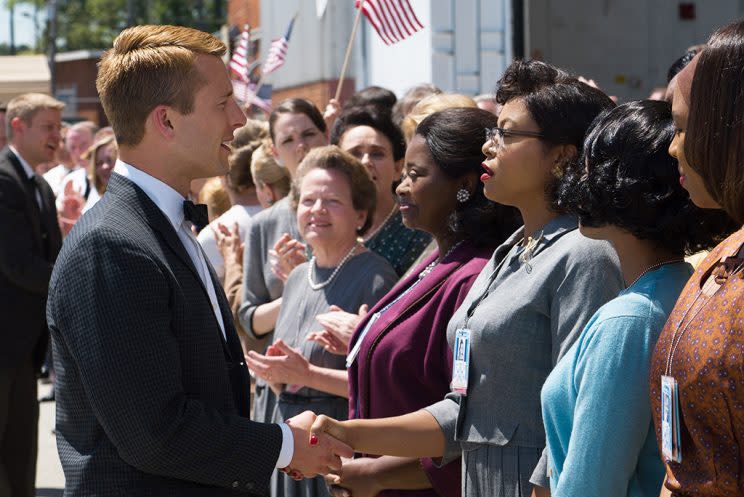
Though Kalfus’s vision was broad, she was working with a small budget. “It was a challenge,” Kalfus said. “It’s a small-budget movie. We had a very limited amount of money and time. It was a challenge to get all that done.” That led Kalfus to think outside the box and find ways to get the most bang for her buck. The majority of the clothes sets were handmade and donated from vintage and thrift stores around the country. Each had to be individually crafted for the role and the time period, to add to the larger picture.
Despite all the work Kalfus dedicated to the style choices for the movie, she reminds us, “It’s not a flashy movie. It’s regular people who are extraordinary people.” Whether you were familiar with these women before or not, Hidden Figures illustrates what happens when tenacity meets resilience in the face of adversity. “Everybody was very excited about this untold story,” Kalfus said. As we celebrate these remarkable women that forever changed the face of mathematics and science, we can also celebrate what it looks like when you do it with style.
Follow us on Instagram, Facebook, and Pinterest for nonstop inspiration delivered fresh to your feed, every day.
